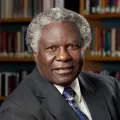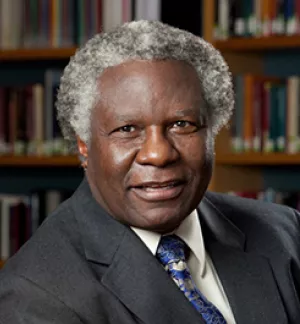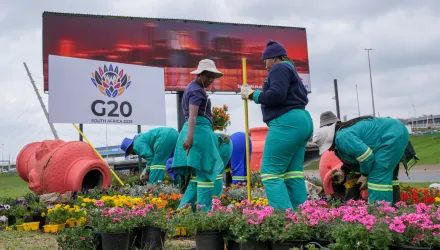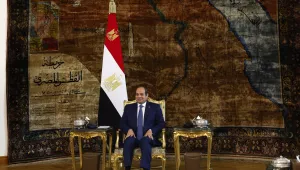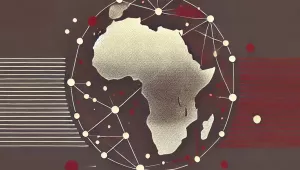For a summary of Prof. Juma's Twitter chat on this topic, click here. #AskCJuma.
Nigeria’s President Muhammadu Buhari is on a high-level visit to China this week. The focus of the working visit is to explore areas of cooperation between China and Nigeria on power, transport, roads, and agriculture.
The visit has reopened a lingering debate on Africa-China relations. Much of this debate has focused on how China’s interests are shaping its relations with Africa. But according to a new book, Africa and China, this debate overlooks the extent to which Africans and their governments are shaping their relations with China.
Buhari’s visit comes at a critical period in the economic history of the two countries. Nigeria is experiencing critical budgetary constraints because of decline in crude oil prices. Meanwhile, China is recording a downturn in its growth, undermining its trade relations with its African commodity exporters such as Nigeria.
In fact, China’s economic downturn is viewed by some observers as a critical blow to Africa’s growth prospects. It is true that countries such as Angola, the Republic of Congo, South Sudan, and South Africa are being forced to revise their growth projections in light of the slump in China’s raw material imports.
China’s trade with Africa has been one of the most dramatic international developments of the new millennium. For every US$100 worth of goods Africa exported in 2000, about $3 of them were sold to China. By 2015 that figure had risen to $24.
Afro-Chinese trade volume stood at $1 billion in 1980 and rose to $10 billion in 2000. A decade later China surpassed the United States as Africa’s top trading partner at a total volume of $114 billion. In 2000 China convened the first Forum on China-Africa Cooperation (FOFAC) to serve as a high-level economic diplomacy platform between the two partners.
By the end of 2014 Africa-China trade volume was $222 billion. China’s total investment stock in Africa is nearly $120 billion with over 3,100 Africa-based enterprises. In December 2015 China’s President Xi Jinping pledged $60 billion over a three-year period in loans and other assistance including manufacturing.
China’s efforts to extend its global influence are evident in its initiatives such as the creation of the Asian Infrastructure Investment Bank. This, however, does not mean that African countries are passive players on China’s diplomatic chessboard. Unlike Africa’s historical relations with the West, the various chapters of chapters of Africa and China show greater determination by Africans and their governments to shape their relations with China to reflect their interests.
There are a number of factors that influence this diplomatic agency. The first is convergence of economic interest and activities. China is a latecomer on the global economic scene, and many of its development lessons are relevant to contemporary Africa.
The convergence of interests covers areas such as infrastructure, agriculture, manufacturing, high technical training, and international trade. It is not accidental that these are also the same issues on top of Buhari’s agenda. He has expressed interest in completing stalled coastal railway projects, particularly the 1,400 km Lagos-Calabar line, which could create up to 200,000 jobs.
Much of Africa’s diplomatic agency in its relations with China is mediated through development learning. One obvious area of interest for Africa is the role of state capacity in promoting economic development. African governments are learning how to engage with China through FOFAC and other collaborative ventures. These lessons are being deployed when negotiating with other countries.
Africa’s bonds with China continue to strengthen through two-way investments and migration. It is estimated that Africans had invested over $15 billion in China by 2014. Many of these investments are in high-tech ventures such as electronics, pharmaceuticals, and machinery.
These investments are linked to a rise in the number of Africans living in China. It is estimated that there are up to 200,000 Africans living in Guangzhou alone. A new generation of Afro-Chinese diaspora will soon be adding unique features to global cultural diversity. The figure excludes the rapidly growing number of African students in China, many of whom are benefiting from 18,000 full scholarships provided by China between 2013 and 2018.
Contrary to popular belief, China’s engagement in Africa is not limited to trade in raw commodities. Many of the China-funded projects are designed to foster local manufacturing and regional trade. Ethiopia, for example, is building up considerable manufacturing knowledge as a result of its cooperation with China.
It is tempting for Africa to look to China as an alternative source of project financing. African countries that take this approach are unlikely to take full advantage of the learning opportunities provided by China’s experiences.
China’s own rise from decades of isolation benefited from smart technology partnerships with Japan. How African countries can adapt such lessons to their local needs will be the ultimate test of their growth in self-confidence and ability to transcend their postcolonial legacies and become learning economies.
Juma, Calestous. “How Africa Is Shaping Its Relations with China.” April 11, 2016

